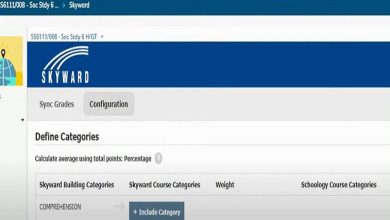What exactly is Ramadan and what is its significance in Islam?

Ramadan is the holiest month in the Islamic calendar, observed by Muslims worldwide as a time for spiritual reflection, self-improvement, and increased devotion. It is a period dedicated to fasting from dawn until sunset, promoting empathy for those in need, strengthening family bonds, and enhancing community connections. This sacred month holds profound significance as Muslims seek to deepen their faith and partake in acts of worship, charity, and forgiveness. Learn more about the customs, traditions, and spiritual importance of Ramadan within the Islamic faith.
Ramadan is the ninth month of the Islamic lunar calendar, during which healthy adult Muslims fast daily from dawn (Fajr) until sunset (Maghrib). This fast includes abstaining from food, drink, smoking, and negative behaviors such as anger and gossip. Engaging in additional acts of worship, including prayer, Quran recitation, and generous charity, is highly encouraged throughout this month.
For Online Quran classes for kids, parents can reach out to Online Quran Live Academy for guidance and educational support.
What exactly is Ramadan?
Ramadan is the ninth month of the Islamic lunar calendar, observed to honor the moment when Allah revealed the Quran to the Prophet Muhammad in 610 AD. This event is commemorated during Laylat al-Qadr, or the “Night of Power,” which holds immense spiritual significance for Muslims worldwide.
The start and end dates of Ramadan vary annually, as they are based on the lunar calendar and the crescent moon’s sighting. Religious authorities officially announce the beginning of Ramadan upon sighting the new moon. For example, in 2024, Ramadan is expected to begin on the evening of Sunday, March 10, and end on Tuesday, April 9, with the celebration of Eid al-Fitr. The month lasts approximately 29 to 30 days, depending on the lunar cycle.
What do Muslims do in Ramadan?
During Ramadan, Muslims focus on enhancing their spirituality and strengthening their relationship with Allah and their loved ones. They fast from sunrise to sunset, refraining from food, drink, smoking, and immoral behavior. The fast cultivates self-discipline and empathy towards those less fortunate.
Ramadan is also a period of community and reflection. Muslims engage in increased prayers, Quran recitation, and charitable acts. Adults and children alike perform Namaz and read Noorani Qaida during this month. Additionally, they avoid gossip, lying, and conflict, nurturing a spirit of peace and kindness.
Importance of fasting in Ramadan
Fasting during Ramadan is vital as it symbolizes sacrifice, self-control, and spiritual growth. It allows Muslims to dedicate their lives to faith, fostering patience, empathy, and deeper connection with Allah. Fasting nourishes the soul beyond the physical constraints, reinforcing one of the Five Pillars of Islam—which include faith, prayer, charity, fasting, and pilgrimage to Mecca.
Exemptions from fasting apply to those who are pregnant, ill, elderly, breastfeeding, or traveling. Those who miss fasting days due to valid reasons can make up for these days later within the year.
Can you eat during Ramadan?
Fasting during Ramadan occurs from dawn until sunset. Muslims abstain from eating, drinking—including water—during these hours. Typically, they rise early for a pre-dawn meal called Suhoor, focusing on hydration and balanced nutrition to sustain them throughout the day. At sunset, the fast is traditionally broken with dates and water, followed by Maghrib prayers and the main meal called Iftar.
Final thoughts on Ramadan
Eid al-Fitr, the Festival of Breaking the Fast, marks the joyful end of Ramadan. This three-day celebration begins with the sighting of the new moon and involves communal prayers, feasting, and acts of generosity. Muslims express gratitude to Allah and reconnect with family, friends, and their community during this festive time.
The spirit of Ramadan lies in unity, compassion, and faith, values that Muslims around the globe strive to uphold during this holy month and beyond.
If you are interested in learning more about How to Celebrate Eid With Friends & Family, please visit our lifestyle category.
In addition to its spiritual practices, Ramadan serves as a profound reminder of the importance of mindfulness, self-discipline, and compassion in daily life. The month encourages Muslims to pause from worldly distractions and engage in self-reflection, fostering inner peace and social harmony. Many communities organize charitable initiatives during Ramadan to assist the less fortunate, strengthening social bonds and promoting a culture of generosity. Embracing these values supports a healthier, more empathetic society while preserving the sacred heritage of this vital Islamic observance.





